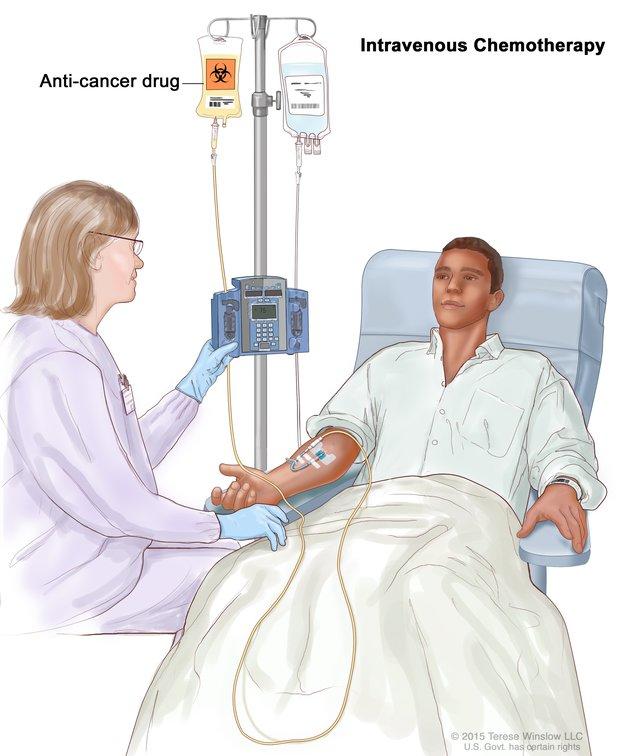Cancer Treatment Disparities Persist for People with HIV
, by Elise Tookmanian, Ph.D.
People with HIV have worse survival after cancer diagnosis than people without HIV, partially due to inequities in receipt of cancer treatment. In the latest study, researchers found that people with HIV were less likely to receive treatment than people without HIV for many different cancers. The results were published in the Journal of Clinical Oncology on March 21, 2024.
Jennifer McGee-Avila, Ph.D., M.P.H., C.H.E.S., C.P.H., postdoctoral fellow in the Infections and Immunoepidemiology Branch, led this study to evaluate treatment disparities using data from the NCI’s HIV/AIDS Cancer Match Study from 2001-2019. The researchers found that people with HIV were less likely to receive cancer treatment for diffuse large B-cell and Hodgkin lymphomas, as well as cancers of the cervix, lung, prostate, colon, and breast. Additionally, they were less likely to receive treatment for local stage cancers, where treatment is most effective. Anal cancer is the one exception – people with HIV were equally likely to receive treatment as those without HIV.
Disparities in treatment declined from 2001-2019 for breast, colon, prostate, and lung cancers. Between 2014-2019, people with HIV diagnosed with breast, colon, and prostate cancers or Hodgkin lymphoma, were equally likely as patients without HIV to receive treatment. However, disparities persisted for diffuse large B-cell lymphoma and cancers of the lung and cervix. Among people with HIV, Black individuals, people who inject drugs, and those 65 years and older were less likely to receive cancer treatment.
Interventions are urgently needed to ensure optimal cancer treatment and outcomes for people with HIV. Further study is needed to identify and eliminate specific barriers to cancer treatment people with HIV may face. Additionally, as these treatment disparities decrease, it will be important to evaluate any disparities in the quality of cancer care in future studies. In the meantime, clinicians should refer to 2018 National Comprehensive Cancer Network, Clinical Practice Guidelines in Oncology for Cancer Management in People Living with HIV, which provides specific guidance and recommendations for people with HIV to receive high-quality cancer treatment.
Reference
McGee-Avila J et al. Cancer treatment disparities in people with HIV in the United States, 2001-2019. J Clin Oncol. 2024.
